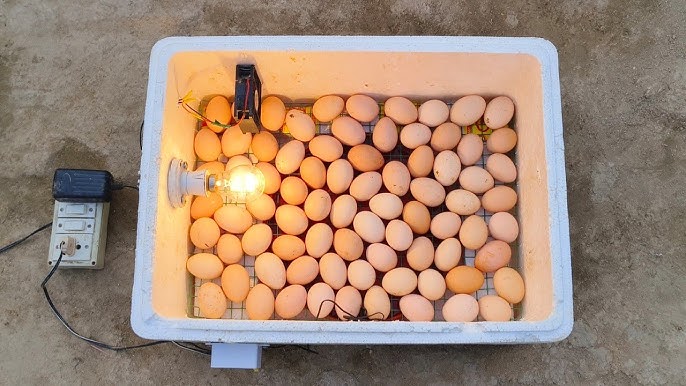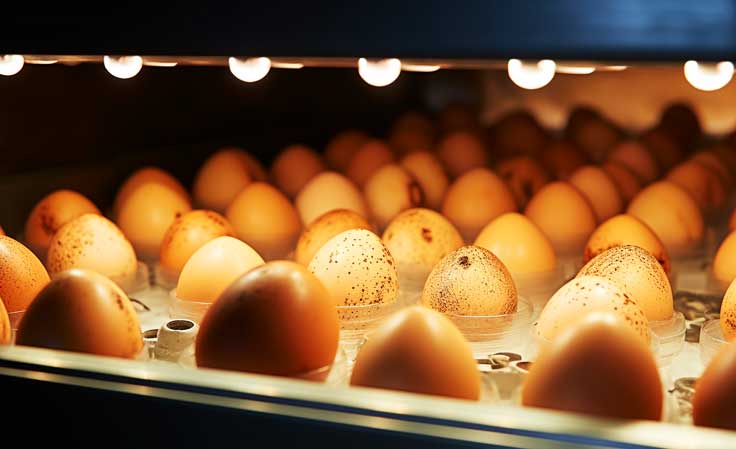Incubating eggs is a fascinating and rewarding process that requires careful attention to detail and a bit of knowledge. For chicken lovers, the journey from egg to chick is a magical experience. The first step in this journey is understanding how to select eggs for incubation. Selecting the right eggs significantly increases the chances of successful hatching. This article will guide you through the process of selecting the best eggs to incubate, ensuring a healthy and vibrant batch of chicks.

Understanding the Basics of Egg Incubation
Before diving into the specifics of choosing eggs, it is essential to understand the basics of egg incubation. The incubation process mimics the natural conditions that eggs would experience under a hen. By controlling temperature, humidity, and ventilation, you can create an environment conducive to hatching. This process typically lasts around 21 days for chicken eggs. Understanding these fundamentals will help you appreciate why selecting the right eggs is so important.
Characteristics of Ideal Eggs for Incubation
The first step in how to select eggs for incubation is identifying the characteristics of ideal eggs. Not all eggs are suitable for incubation, so it is crucial to know what to look for:
1. Size and Shape
Eggs should be of average sizeneither too large nor too small. Oversized or undersized eggs may not have a proper yolk-to-albumen ratio, affecting the development of the embryo. Additionally, eggs should have a uniform shape, avoiding odd or misshapen eggs.
2. Shell Quality
Examine the shell quality carefully. It should be smooth, clean, and free from cracks. A strong shell is vital as it protects the developing embryo from bacteria and facilitates proper gas exchange.
3. Freshness
Freshness is another key factor in selecting eggs for incubation. Ideally, eggs should be no older than seven days. Older eggs have reduced hatchability due to the degradation of the eggs internal environment.
Examining the Parent Stock
The health and genetics of the parent birds play a significant role in the success of egg incubation. Ensure that the parent stock is healthy, well-nourished, and free from diseases. This affects the egg’s quality and the future health of the chicks. For more information on maintaining a healthy flock, visit The Poultry Site.
Proper Handling and Storage of Eggs
Once you have selected the eggs, proper handling and storage are crucial. Handle eggs gently to avoid causing hairline cracks. Store eggs with the pointed end downwards in a cool, stable environment. Learn more about this in our egg storage guide.
The Importance of Candling Eggs
Candling allows you to assess the development of the embryo by shining a light through the egg. This process helps in identifying any issues early. Regular candling provides valuable insights into the incubation process. Our candling schedule can help you determine the best times to candle your eggs.
Maintaining Optimal Incubation Conditions
After selecting and preparing your eggs, maintaining optimal incubation conditions is key. Control the temperature, humidity, and ventilation inside the incubator. This ensures a stable environment for the developing embryos. For detailed guidance, refer to our article on humidity control in incubators.
Common Challenges in Egg Incubation
Egg incubation can present several challenges, such as temperature fluctuations, improper humidity levels, and contamination. Being aware of these challenges and knowing how to select eggs for incubation can help mitigate these issues.
Post-Incubation Chick Care
Once your chicks have successfully hatched, proper care is essential to ensure their health and growth. Providing a warm, safe, and clean environment is crucial. Learn more about caring for chicks after hatching.
Conclusion
In conclusion, knowing how to select eggs for incubation is a critical step in the hatching process. By choosing the right eggs and maintaining optimal conditions, you can enjoy a successful and rewarding incubation experience. Whether you are a seasoned poultry enthusiast or a beginner, these guidelines will help you in your journey from egg to chick.

Frequently Asked Questions
1. How long can eggs be stored before incubation?
Eggs can be stored for up to seven days before incubation. Storing them longer may reduce hatchability. Ensure they are kept in a cool, stable environment.
2. What is the best temperature for incubating chicken eggs?
The ideal temperature for incubating chicken eggs is around 99.5F (37.5C). Consistent temperature is crucial for successful development.
3. Can I use eggs from the supermarket for incubation?
Supermarket eggs are typically not suitable for incubation as they are often unfertilized and have been processed in ways that affect their viability.
This article contains affiliate links. We may earn a commission at no extra cost to you.











